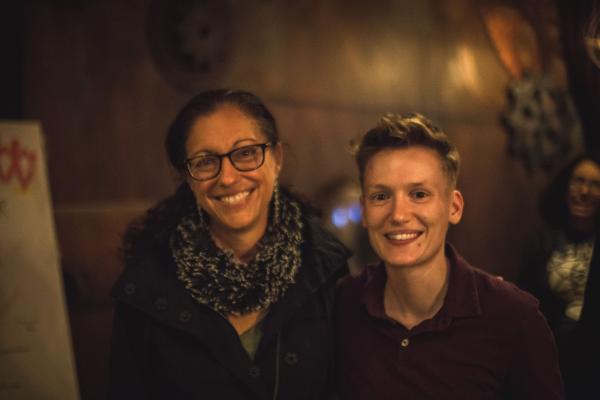Laurenzo De Camilla graduated this summer with a Ph.D. in Italian Studies, and a dissertation titled “Female Leads: Negotiating Minority Identity in Contemporary Italian Horror Cinema.” De Camilla closes this chapter of their life with numerous achievements, including participation in the Italian Cinema(s) Abroad Conference and service as FRIT’s first Graduate Professionalization Representative. They look with excitement towards a career of education and social justice as a voice for LGBTQ youth.
Like so many of us, De Camilla spent this spring and summer in isolation, which, they say, was “more beneficial than not” in their case. It removed distractions and allowed them to focus on finishing the dissertation and preparing for the defense. The defense felt a bit odd, “It was weird not to be in 206,” says De Camilla (206 is FRIT’s conference room and holds most graduate exams), “there was no big hug or celebration, I turned off my computer and it was over.” They look forward to celebrating once things normalize.
Despite the unusual circumstances, De Camilla delivered an excellent dissertation defense, and thoroughly enjoyed discussing their work and having an engaged conversation with advisor Dana Renga and other members of the committee. It was the conclusion of six years of strong and dedicated academic work.

De Camilla points out several events as highlights of their time at OSU. In March 2019, the department hosted The Italian Cinema(s) Abroad Conference, where DeCamilla presented a paper titled “Local Motherhood in a Global Community: Social Precarity in Rossella De Venuto's Controra - House of Shadows." The presentation concerned sensitive issues including roles of women and abortion; the audience was mostly male. DeCamilla felt the pressure and the importance of bridging this gap.
For the last two years of their program, De Camilla served as the Graduate Professionalization Representative, a role they created. In this role they worked with other graduate students on developing a full academic portfolio, including teaching, grants, conferences, and publications. Along with a few fellow students, De Camilla realized that it is important to start thinking about all of these things at the beginning of a Ph.D. program, rather than during the last couple of years, and to set professionalization goals for each year. They found this role very fulfilling.
With graduate school behind them, De Camilla is excited to focus more attention on being an advocate for LGBTQ youth with the help of their already growing channels on TikTok, YouTube, and Instagram. DeCamilla thinks of themself first and foremost as an artist, and then an academic, and they see their career in content creation.
Their channels feature videos on topics of gender, non-binary identity, and sexuality through skits, comedy, and personal stories. De Camilla’s videos have millions of views, and they are grateful to serve as a role model, connect with youths all over the world, guide them through difficult transitions, and educate the public on LGBTQ topics. “During the pandemic many youths are isolated with unsupportive and/or homophobic families,” says De Camilla, so this is an especially important time to serve as a friendly and helpful voice.

While content creation might seem like a big shift from Italian Studies, De Camilla stresses the value of her experiences in graduate school. “It was a place to be free, a safe space where I could explore my identity and learn,” they say. They immersed themself in self-discipline and critical thinking skills and gained a deep knowledge of visual culture and gender studies. “All of that has really bolstered the content that I am able to put out now,” says De Camilla, “all of that can be applied to my voice in social justice.”
De Camilla’s channels can be found by searching for @adesso.laurenzo or by following the links below. The username means “Now Laurenzo” in Italian and serves as a message that encourages LGBTQ+ youth to 'be themselves.'
TikTok link
YouTube link
Instagram link
